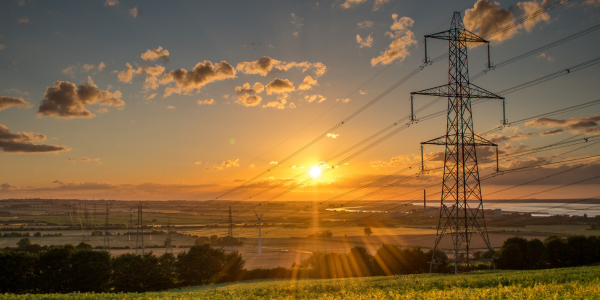Jul 03, 2024
Understanding the Potential New UK Labour Policy: The Formation of GB Energy

In recent discussions, the UK Labour Party has proposed a significant policy initiative that could reshape the country's energy sector: the creation of GB Energy. But what exactly does this mean for us? Deciphering these changes can seem daunting due to increasing geopolitical tensions and political instability. Let's break down what this means for us and how it could affect our journey towards sustainability.
What is GB Energy?
GB Energy is proposed as a publicly owned energy company that would be established if the Labour Party came to power. The idea behind GB Energy is to create an entity that can oversee and manage the nation's energy production and distribution, primarily focusing on renewable energy sources.
Why is GB Energy Being Proposed?
The primary motivations for proposing GB Energy lie in addressing several key issues:
1) Energy Security
The UK's heavy reliance on imported energy has raised concerns about national security and the stability of the energy supply. Energy security involves ensuring uninterrupted access to energy sources at reasonable prices. Recent geopolitical events, such as Russia's invasion of Ukraine in February 2022, highlighted the vulnerabilities associated with such dependency. Europe, which imports 57.5% of its energy predominantly from Russia, faced significant disruptions in energy supply [Financial Times]. Establishing a public energy company like GB Energy could reduce this dependence, ensuring a more secure and reliable energy supply while mitigating geopolitical risks.
2) Climate Change
GB Energy aims to accelerate the transition towards renewable energy sources such as wind, solar, and hydroelectric power. This initiative aligns with global efforts to reduce carbon emissions and combat climate change. Labour's commitment to scaling up renewables is pivotal in creating green jobs and positioning Britain as a global leader in clean energy.
3) Consumer Costs
Energy prices have been a burden for many households. Through public ownership, GB Energy intends to offer more affordable energy options by eliminating profit margins typical in private companies. This could reduce consumer costs in the long run, although factors such as network costs and subsidies currently affect bills.
How Would GB Energy Operate?
GB Energy would function similarly to existing public utilities but with a modern twist focused on sustainability. With strong public support—66% of voters favour the creation of GB Energy according to a YouGov survey—here's how it might work:

Investment in Infrastructure
The company would invest significantly in renewable energy infrastructure, including building wind farms, installing solar panels, and upgrading the grid to handle new loads and storage solutions. Labour's proposed company is a central part of its £5 billion annual "green prosperity plan," partly funded by increasing the windfall tax on oil and gas drillers [Financial Times].
Competitive Market Presence
GB Energy would operate within the competitive energy market even as a public entity. It would sell energy to consumers and businesses and potentially export any excess to other countries.
Reinforcement of Regulatory Standards
GB Energy could set higher standards for environmental and labour practices within the industry, encouraging private companies to follow suit. This could lead to an overall improvement in industry standards and practices.
Potential Benefits
-
Environmental Impact: Greater control over energy production means a quicker shift to renewable sources, contributing to lower carbon emissions.
-
Economic Stability: By controlling energy prices, GB Energy could help shield consumers from volatile market fluctuations.
-
Job Creation: Investing in new energy projects could create numerous jobs in the green energy sector. Of its £8.3bn first-parliament funding, £3.3 bn will support local authorities and community projects [Financial Times].
Potential Challenges
-
Funding: Establishing and maintaining such an extensive operation would require significant government investment.
-
Market Dynamics: Competing with established private companies might present initial operational challenges.
equiwatt’s thoughts
Here at equiwatt, we believe that any policy to encourage the use of more sustainable energy is exactly what this world needs.
Although the policy for GB Energy is currently a high level strategy with no key details, as and when the policy starts to get expanded on, we would like to see the inclusion of energy flexibility, specifically demand response, which we think is vital to its success.
But what is energy flexibility?
Energy flexibility refers to the ability of an energy system to efficiently manage and meet variations in the supply and demand of energy.
A key part of energy flexibility which equiwatt is especially keen to see in the policy for GB Energy is known as Demand Response. This is the capability of consumers to adjust their energy usage based on the needs of the grid. The best example of Demand Response in action in the UK is Nation Grid ESO’s Demand Flexibility Service.
The National Grid ESO's Demand Flexibility Service (DFS), was introduced in winter 2022/23 and aims to reduce strain on the electricity grid at the busiest times of the day. This is important as ESO is responsible for making sure that Great Britain has all the energy it needs every day.
By encouraging consumers to reduce electricity usage during peak demand periods, the DFS helps UK households reduce their energy usage and contribute to a more sustainable energy ecosystem.
The GB Energy policy states it will increase the number of wind turbines and solar panels across the country which in turn will increase the amount of power we have access to - this is great, however, both of these methods are variable.
This means that you need specific conditions e.g. wind and sun to generate energy. Since it is difficult to store energy via these methods, it is hard for renewable energy generation to meet sudden spikes in energy usage. In situations such as this, dirty polluting power plants are currently needed to to satisfy the demand.
Likewise, if there is more renewable energy being generated than is needed(in the summer for example) there is a large amount of energy wasted and in some cases, wind turbines are even paid to switch off as the energy cannot be used.
So what’s the solution?
At equiwatt, we believe in empowering households to make a real difference in supporting the transition to a net zero grid by changing their energy consumption habits. Our powerDOWN and powerUP events form the cornerstone of this mission.
powerDOWN events are run as part of National Grid ESO's DFS and incentivise users to reduce electricity usage during peak hours through our user-friendly app.
equiwatt app users are invited to take part in a number of powerDOWN events during which they were encouraged to reduce their electricity usage below their expected usage for that time and day. Users are awarded points after each event, which they can use to redeem for a range of high street vouchers, smart technology or donations to charity.
powerUP events are run to incentivise users to shift their energy usage to periods of the day when wind energy would otherwise be wasted and make the most of the renewable energy that is available. This could mean cooking or doing their washing during the event rather than later or earlier in the day
By taking part in these events, the equiwatt community helps balance the demand on the the grid by shifting their energy usage, saving substantial CO2 emissions in the process. Check out this year’s powerDOWN results in our blog here.
If you are interested in finding out more or taking part in the next DFS period, get in touch with us or download the equiwatt app here.
Conclusion
The proposal for GB Energy represents a bold step towards rethinking the UK's approach to energy. With its focus on renewable energy, consumer cost reduction, and energy security, it aligns closely with broader environmental and economic goals. While there are challenges to consider, the potential benefits present a compelling case for this policy.
By understanding the basics of GB Energy, we can better appreciate the potential changes and improvements it could bring to the UK's energy landscape, and let’s hope we see energy flexibility mentioned soon.
Do you have any questions or additional topics you'd like to explore about GB Energy?
Keep checking our blog for more updates.














